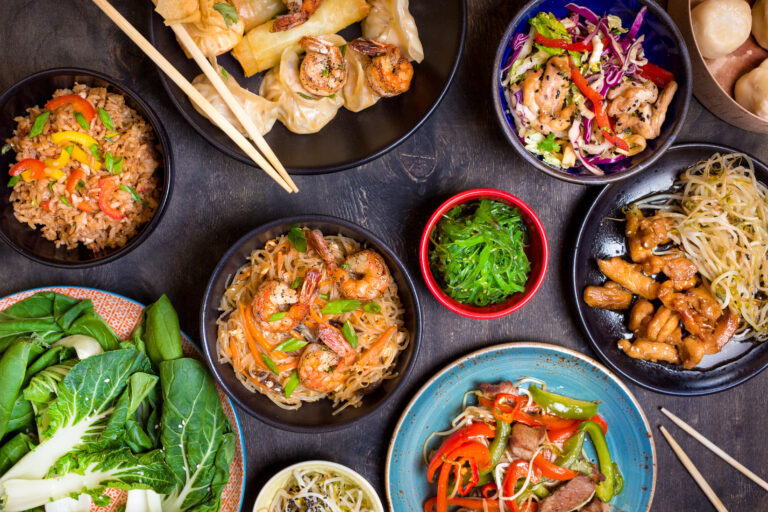For more cleanliness and hygiene in the household, you should know and eliminate sources of germs. We will show you where bacteria are lurking in the household and how you can effectively avoid germs.
What looks clean on the surface can reveal dangerous impurities under a closer microscopic examination. As a result, many people rarely effectively eliminate sources of germs in the home.
Clean against germs and bacteria
Small microorganisms, such as bacteria and germs, become part of our everyday lives. Because they are in the air, on our skin, and on many objects. They are mostly harmless to humans. In addition, they can also be useful to humans in that bacteria protect our skin or digest food in the intestine. But there are germs and bacteria that can cause diseases and are particularly dangerous for people with weak immune systems. Therefore, a certain level of hygiene in the home can be important. Consequently, get to know the sources of germs in the household and read how you can avoid germs in the future.

Avoid sources of germs in the household
Not only protective corners should worry us at home. The many sources of germs in the household are also worrying. Because most of them are unknown to us and in use every day. Natural and antibacterial cleaning agents, such as classic home remedies, are usually sufficient for cleaning. So that you can ensure more hygiene in the household, note and avoid the following sources of germs.
1) Change kitchen towels regularly
The kitchen rag is the most dangerous germ spreader in the household. Because these are heavy to very heavily contaminated with germs. Therefore, it is important that you change kitchen towels and tea towels at least once a week. If you use cloth rags, you should wash them regularly at 60 degrees. Also, read our tips for doing laundry and removing bacteria.
2) Clean bacteria on dish sponges
It is also impossible to avoid germs on dishcloths and sponges. The bacteria multiply very quickly here due to the moisture in the rags. To remove germs, you can put the dishcloth that is still intact in the microwave for two minutes. In the process, 99 percent of harmful pathogens are killed. Also, read the helpful instructions on how to clean the kitchen.
3) Clean cutting boards properly
For more hygiene in the household, you should always clean your cutting boards thoroughly after use. Because these are often heavily contaminated with germs. Especially if you have cut raw meat or fish on it. Therefore, rinse the cutting boards immediately after use with washing-up liquid and hot water. You can also clean them in the dishwasher from time to time.
4) Avoid germs and clean countertops
Bacteria and germs have a harder time on smooth surfaces, but many can accumulate here. Since you probably use your work surface frequently and a lot of different things are stored here, this is where germs quickly come into play. Accordingly, clean these surfaces daily with hot water and detergent. In addition, get to know other natural cleaning agents for cleaning the kitchen.
5) Thoroughly clean the taps
The faucets supply running water. However, they are often forgotten when cleaning. As a result, bacteria collect here. Whether in the bathroom or in the kitchen, you should not forget to clean the taps and rid them of germs once a week with suitable cleaning agents. Also, read tips on how to clean the bathroom properly.
6) Clean stove knobs for household hygiene
Likewise, we use the knobs on the stove every day when preparing our food. A lot of sticks here, such as tomato sauce, some oil, or flour. And these things are at best wiped away quickly. But how often do you clean the stove knobs? Right, that too is often forgotten. For hygienic cleanliness, you should clean them completely from time to time. The best way to do this is to clean the oven.
7) Coffee machines as a source of germs

Delicious coffee from the coffee machine in the morning or afternoon is essential for many people. However, a common mistake when using a coffee machine is that the water tank is not cleaned enough. This makes it easy for bacteria and germs. So that you can avoid germs here, clean the water tank regularly.
8) Avoid germs in the toothbrush cup
After brushing their teeth every day, most people place their toothbrushes in a toothbrush cup. Water that runs down from the toothbrush collects in the cup. And that gives the bacteria a good breeding ground to spread. Accordingly, you should also rinse and dry the cup every two days. You can also put it in the dishwasher once a week. Also, read effective tips for cleaning the dishwasher and descaling the dishwasher.
9) Germ-infested toilets
The toilets in the domestic bathroom are usually not as contaminated with germs as many believe. A sink can contain many more germs than a toilet seat. Nevertheless, you should definitely clean the toilet regularly. Make sure that you use an extra cloth for cleaning. Then wash it at at least 60 degrees. In this way, you ensure hygiene in the household. Because the bacteria and germs are killed at high temperatures.














